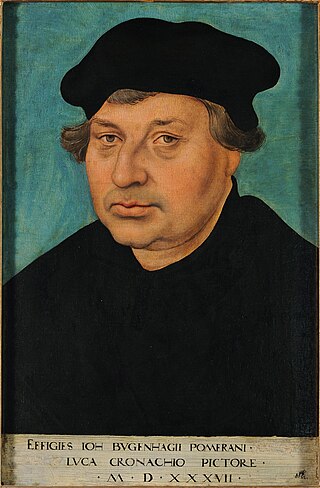
Johannes Bugenhagen, also called Doctor Pomeranus by Martin Luther, was a German theologian and Lutheran priest who introduced the Protestant Reformation in the Duchy of Pomerania and Denmark in the 16th century. Among his major accomplishments was organization of Lutheran churches in Northern Germany and Scandinavia. He has also been called the "Second Apostle of the North".
Robert Kolb is professor emeritus of Systematic Theology at Concordia Seminary, St. Louis, Missouri, and a world-renowned authority on Martin Luther and the history of the Reformation.
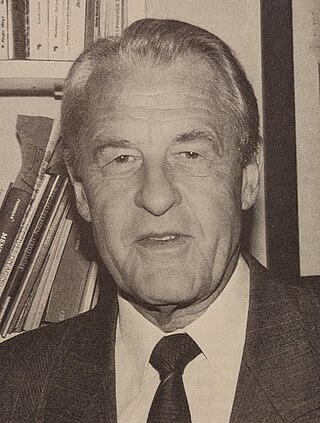
Rolf Rendtorff (1925–2014) was Professor of Old Testament at the University of Heidelberg from 1963 to 1990. He was one of the more significant German Old Testament scholars from the latter half of the twentieth-century and published extensively on various topics related to the Hebrew Bible. Rendtorff was especially notable for his contributions to the question of the origins of the Pentateuch, his adoption of a "canonical approach" to Old Testament theology, and his concerns over the relationship between Jews and Christians.
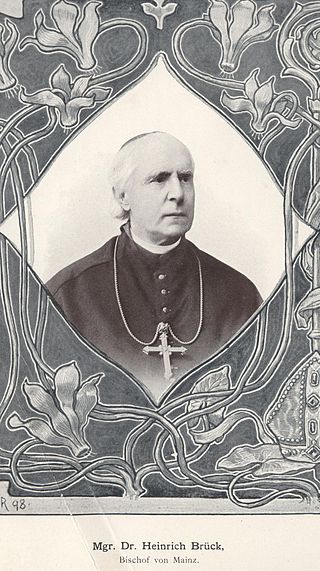
Heinrich Brück was a German Catholic church historian, and Bishop of Mainz.
The Leibniz Institute of European History (IEG) in Mainz, Germany, is an independent, public research institute that carries out and promotes historical research on the foundations of Europe in the early and late Modern period. Though autonomous in nature, the IEG has close connections to the Johannes Gutenberg University Mainz. In 2012, it joined the Leibniz Association.
Wolfgang Achtner was a theologist who played a key role as an ambassador for the science-and-religion dialogue in Germany.
Bernd Moeller was a German Protestant theologian and church historian.
Heinz Schilling is a German historian.
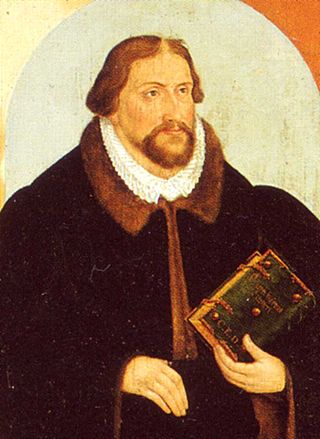
Kaspar Eberhard was a German Lutheran theologian and teacher. He was born at Schneeberg, and died at Wittenberg.

Anna of Cleves was a daughter of Duke William V of Jülich-Berg and his wife, Maria of Austria.
Christopher Ocker is a historian and Professor of Medieval and Early Modern Studies at the Institute for Religion and Critical Inquiry in the Australian Catholic University, Melbourne. He is also professor of the history of Christianity at San Francisco Theological Seminary; a member of the Core Doctoral Faculty of the Graduate Theological Union in Berkeley; series editor of Studies in Medieval and Reformation Traditions, and a co-editor of Arbeiten zur Kirchengeschichte. He served as Interim Dean of SFTS and Assistant Provost of the Graduate School of Theology in the University of Redlands from 2021 to 2023. Ocker is known for his work on the history of religion in Europe, Medieval and early modern intellectual and cultural history, and the social and political history of late medieval and early modern Central Europe.

Thomas Maissen is a professor of modern history at Heidelberg University and co-director of the Cluster of Excellence "Asia and Europe in a Global Context". As of September 2013 he is detached as director of the German Historical Institute in Paris.
Friedrich Wilhelm Karl Ritter von Hegel was a German historian and son of the philosopher Georg Wilhelm Friedrich Hegel. During his lifetime he was a well-known and well-reputed historian who received many awards and honours. He was one of the major urban historians during the second half of the 19th century.

John IX of Haugwitz was Bishop of Meissen from 1555 to 1559 or 1581.

Deus revelatus refers to the Christian theological concept coined by Martin Luther which affirms that the ultimate self-revelation of God relies on his hiddenness. It is the particular focus of Luther’s work the Heidelberg Theses of 1518, presented during the Heidelberg disputation of 1518. In Christian theology, God is presented as revealed or Deus revelatus through the suffering of Jesus Christ on the cross. Debate of the term is found in the field of philosophy of religion, where it is contested among philosophers such as J. L. Schellenberg. The term is usually distinguished from Luther's concept of Deus absconditus, which affirms the fundamental unknowability of the essence of God. However, Luther proposed that God is a revelation who uses the fog to obscure himself. This distinction which permeates his theology has been the subject of wide interpretation, leading to controversy between theologians who believe the terms to be either antithetical or identical. These two conflicting strands of thought present the main problem when interpreting Luther’s doctrine of the Revealed God. In recent years the term has been used to inform modern analysis of religious themes such as evolution.
Sabine Holtz is a German historian who holds the position of Chair of Regional History at the University of Stuttgart. Since 2015, she has also been the head of the Commission for Regional Historical Studies in Baden-Württemberg.
Frank-Rutger Hausmann is a German Romanist and historian.
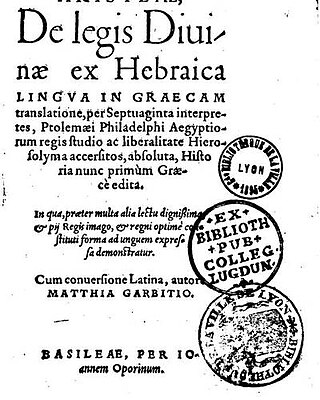
Matthias Garbitius or Matija Grbić was a German humanist, classical philologist and translator. Born in Istria, he emigrated to Nuremberg. Between 1545 and 1557 he was the dean of the philosophical faculty at the University of Tübingen. He is the first known Protestant from the Balkans.
Hans Medick is a German historian.
Hartmut Lehmann is a German historian of modern history who specializes in religious and social history. He is known for his research on Pietism, secularization, religion and nationalism, transatlantic studies and Martin Luther. He was the founding director of the German Historical Institute Washington DC and was a director of the Max Planck Institute for History. He is an emeritus honorary professor at Kiel University and the University of Göttingen.









